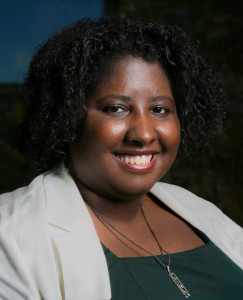Caucusing with a Disability

Like many in Iowa, Jacki O’Donnell is an avid political enthusiast. She was prepared to vote for Hillary Clinton in the Democratic caucus. Unfortunately, she had to leave before party business began. O’Donnell was in a back brace after fracturing her vertebrae, and sitting in a metal folding chair for hours while caucus-goers deliberated proved too much. Thus, she became one of thousands of U.S. citizens with disabilities unable to participate fully in the caucus process.
Thirteen states use the caucus system to select 10 percent of Democratic and 15 percent of Republican delegates, who in turn vote for their party’s presidential nominee. Caucuses are the quintessential places of public accommodation. Everyone affiliated with a political party is expressly invited to attend and participate.
But, whereas voters in a primary cast a secret ballot and then leave, caucus-goers cluster to listen to people speak about their chosen candidate. Attendees then vote for delegates who will carry their wishes to the national party convention.
In theory, caucuses bring large-scale democracy to the living room, create community engagement, and allow people to deliberate before casting a vote. These benefits, though, are not open to everyone. At least 37 percent of people in the United States have a disability. An estimated 30 to 35 percent of all voters in the next 25 years will need some form of accommodation. While we lack research on caucus-goers, Rutgers professor Lisa Schur reports that people with disabilities are up to 21 percent less likely to vote than people without disabilities.
Voters with disabilities face numerous barriers to caucus participation. The obstacles vary depending upon the type of impairment. A deaf voter may be unable to understand fellow voters without captioning or translation. A veteran with post-traumatic stress disorder may find the prospect of standing in a crowded room for hours impossible. Elderly voters and voters with physical impairments may not have the stamina to sustain hours of deliberation.
Accessibility problems built into the caucus process not only disenfranchise voters with disabilities, but also violate the law. Yet, neither national political party offers guidelines on caucusing with a disability. Only three states, Colorado, Minnesota, and Washington, have enacted relevant statutes. No caucus states have adopted any formal administrative rules. A few states and localities have voluntarily adopted policies and resolutions to accommodate prospective voters with disabilities. The lack of broad accessibility regulations by the political parties who govern the caucuses violates the Americans with Disabilities Act (ADA), specifically Title III, which prohibits discrimination in places of “public accommodation.”
Political parties have responded to such concerns by pointing out that caucuses are not run by the state and that private political parties have a right to organize as they see fit. But the ADA applies to private institutions such as restaurants and hair salons if they are places of public accommodation; that the caucuses are private makes them no less bound by the ADA.
Parties have also touted absentee voting as an alternative system for people with disabilities. But absentee voting is not enough. Because they must vote in advance, absentee voters cannot take advantage of late-breaking news and debates. Moreover, absent accommodations, voters with disabilities can face difficulties with the ballot itself. For example, blind people or people with dexterity issues may find it challenging or impossible to complete and mail a paper ballot. Some voters will make errors that would otherwise be caught and corrected by election officials and voting booth technology.
Shifting people with disabilities into an alternative system also perpetuates stigma. Voters with disabilities want to vote in the same manner as their fellow citizens. People with disabilities watch their friends, neighbors, and family members go off to caucus while they remain at home. They know it is purely because of their disability that they are left behind.
Some of the accommodations required for accessible caucusing are quite simple. We could offer sign language translation, handicapped parking spots, and comfortable seating. We might allow people with disabilities to skip long lines into the caucus site. We could make all caucus sites public so that they are already required to fulfill ADA requirements such as providing curb cuts for wheelchair users.
While America is preoccupied with choosing its next president, a large group is being left behind in the decision-making process. Caucuses are not only places where we decide who will represent our nation, but also sites where we decide who is a member of our political community. Accessibility measures in the caucus process would shore up democratic legitimacy, reduce stigma, and ensure full democratic participation for one of the country’s largest minority groups. If we cannot accommodate everyone, it may instead be time to ask whether the benefits of this system are worth the costs to inclusive participation, or whether caucuses should be abandoned altogether.
Rabia Belt is a legal historian and expert in voting and disability law. She is currently a research fellow at Stanford Law, and will take her position as an assistant professor of law in September 2016.
1 Response to “Caucusing with a Disability”
Comments are closed.
Post Pagination

Bob Kafka
There are many national efforts on disability and voting.
aapd.com/REVUP
National Disability Voter Registration Week
July 11th – July 15th